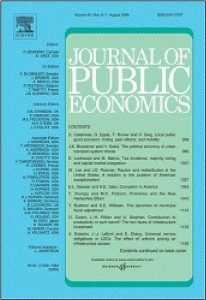
Dirkmaat, T., Rohde, K., \van de Veer\, E., \van Dijk\, B. and Yu, X. (2023). Managing “Last Moment Behavior”:: Non-binding target dates to reduce the spikes in task completion at deadlines Journal of Public Economics, 219:.
-
Affiliated author
-
Publication year2023
-
JournalJournal of Public Economics
Many large governmental programs - such as census, tax returns, grant applications, subsidy applications - have to deal with large volumes of submissions that take place right before the deadline. To study how to alleviate the overload during the peak submission period, we conducted two field experiments in a national census that includes submissions from farming enterprises in the Netherlands (n = 28,557 in 2016; n = 19,733 in 2017). The results show that setting an earlier non-binding target date for submission is a robust, replicable and effective method of nudging towards earlier submission. The treatments with non-binding target dates increased the probability of submitting before the peak-period by 4–5 percentage points on average. Letting people choose their own non-binding target date was also effective, yet with a smaller effect size of 3 percentage point increase in off-peak submissions. Reminding people of “early submission, early evaluation”, and providing a checklist of information to help with the submission did not improve the timing of submissions.